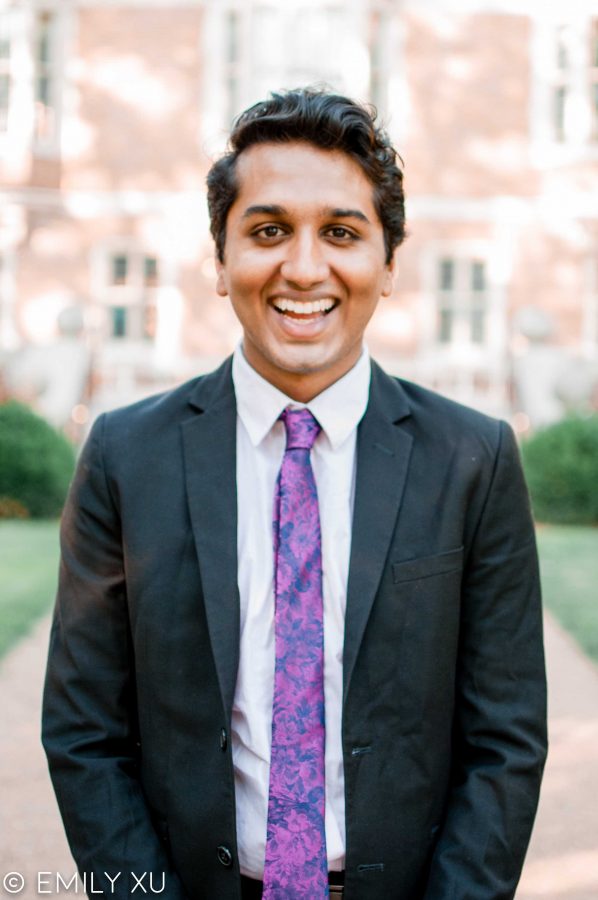During Move-In Day, as I helped new Vanderbilt students settle into their dorms with the Move Crew, the father of a South Asian student approached me as I was carrying a microwave out of his car. Commenting on the diversity of students he saw who were helping move luggage that day, our conversation led to student activism on campus as he referenced contentious student protests at UC Berkeley. After he asked about the safety on campus surrounding protests, I told him that I found Vanderbilt’s campus to be very safe, while explaining the resources that are available to students. Midway through our discussion, he cut me off saying that “we wouldn’t have this issue if Blacks would stop committing crimes,” adding that “you don’t see this type of stuff with other races – it’s something to do with their culture for sure.” As we were approaching his child’s room, I was taken aback, awkwardly changing the topic of conversation to his hometown.
Part of me was genuinely shocked by the cavalier racism in his response, as naive as that might sound, while another part of me remained mostly unsurprised. In my experience (and in research), racism directed towards other minorities is quite common within Asian communities, often brought up concerning issues of affirmative action, colorism and crime. Many attribute this to the cultural homogeneity within Asian countries and Asians’ lack of exposure to other minorities once they immigrate to America. As Asian perspectives remain largely absent on the national spectrum when it comes to race or politics in general, it is an issue that is often overlooked by the public.
When the topic of undocumented immigrants appears with a focus on immigrants from Mexico and Latin America, Asian immigrants, who “since 1965 … have come to the U.S. under certain immigration preference categories that favor professional skills and training,” as stated by Professor Eliza Noh from California State University, hold strongly conservative views on the matter. Many oppose paths to citizenship for undocumented immigrants in America. Whether it be at the end of the reception at a wedding or at cultural gathering in my hometown, it is not uncommon for me to hear the characterization of Hispanic individuals as ‘freeloaders’ or ‘cheaters’ who never had to put in ‘hard work to get to America.’ These comments come from individuals who I have considered to be friends.
In the discussion of racism, I want to state that no one is discrediting the immense sacrifices made by Asian immigrants in the face of discrimination on the journey to America. Often rising from low socioeconomic levels to attain medical degrees and advanced education, many Asians immigrate to this country through sheer grit and tenacity. However, it is important to note that their journey was not started in a country with institutionalized discrimination against their race. (With relatively homogenous populations, stratification in countries like India take place along lines of class and caste.) Too often, minorities are pitted against one another with pundits touting the ‘asian model minority’ model as they try to show that hard work alone can guarantee that someone can climb the societal ladder, regardless of race. Too often we act as if there is a competition of discrimination in society, with individuals vying to show how they have achieved the ‘most’ despite starting out with the ‘least’. This competition leads many Asians to view poverty within certain subsets of the American population as a result of a lack of ambition.
Regardless of where one might think this racism “comes from,” dismissing it as just a result of older people stuck in their antiquated ways only causes racism within our communities to continue to exist. While Asian Americans have recently emerged as a more vocal minority group in the recent decade, with increased representation in film, media and politics, the issues with the ‘model minority’ myth and discrimination faced by Asian Americans is starting to enter our public dialogue. As a minority population, it is hypocritical for us to highlight the discrimination which Asian Americans face while also being complicit in the marginalization of America’s African American and Latino populations. Although we might not hold these racists views, a failure to call out racism within our communities causes us to become complicit in discrimination.
Even within Vanderbilt, it is not uncommon for Asian students I know to joke about how they would ‘never bring a Black person’ home as a boyfriend/girlfriend, citing a ‘potential disownment’ from their family. Too often I see first generation Asian Americans fail to confront this racism – as I did with my conversation with a Vandy parent. Many of us who are first generation Americans bite our tongue, telling ourselves that it is not the time or place to talk back to elders and cause an awkward situation in public. These excuses cause us to merely promote discrimination: silence in instances of racism is blatant complicity.

